Better Addiction Care Blogs
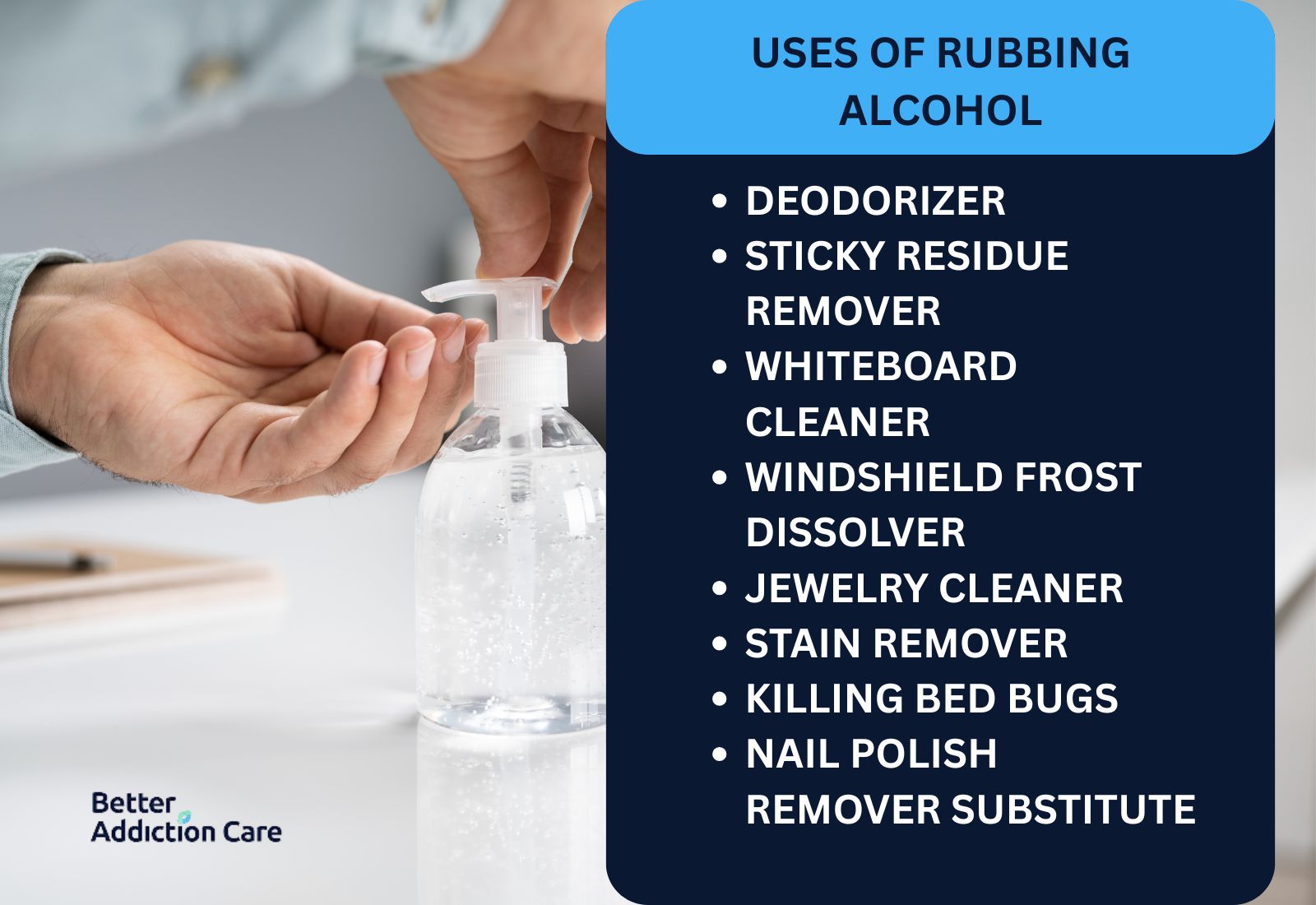
Rubbing alcohol is a solution made from isopropyl alcohol or ethyl alcohol mixed with water. It serves as an antiseptic for cleaning wounds and disinfecting surfaces. This colorless liquid has a sharp, musty odor and finds use in cosmetics, pharmaceuticals, and household cleaning.
Rubbing alcohol is a solution made from isopropyl alcohol or ethyl alcohol mixed with water. It serves as an antiseptic for cleaning wounds and disinfecting surfaces. This colorless liquid has a sharp, musty odor and finds use in cosmetics, pharmaceuticals, and household cleaning.
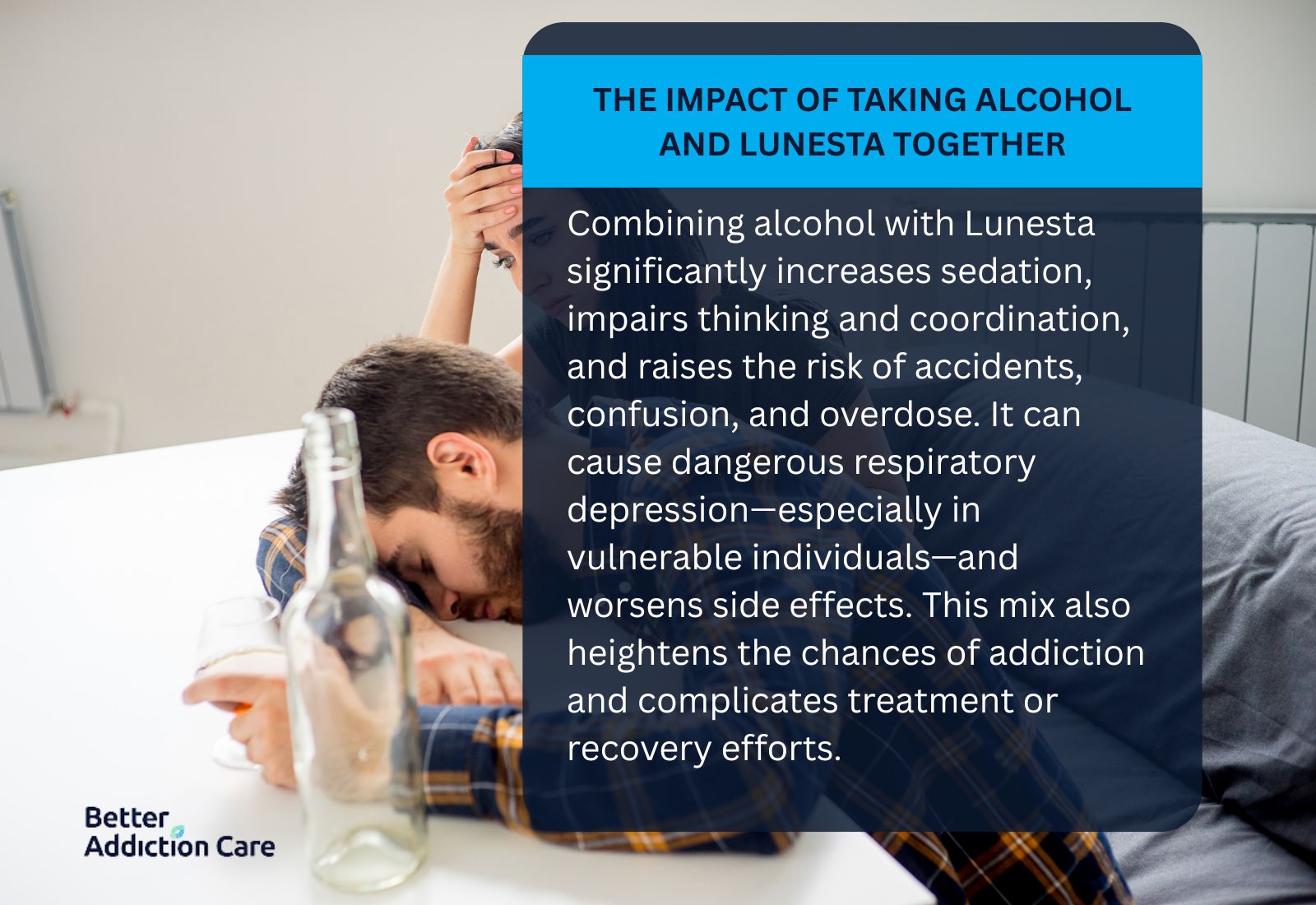
The dangers of mixing Lunesta and alcohol are intensified sedation, respiratory depression, impaired cognitive function, increased risk of accidents, heightened risk of dependency, worsened side effects, overdose, life-threatening complications, reduced effectiveness of treatment, and memory blackouts.
The dangers of mixing Lunesta and alcohol are intensified sedation, respiratory depression, impaired cognitive function, increased risk of accidents, heightened risk of dependency, worsened side effects, overdose, life-threatening complications, reduced effectiveness of treatment, and memory blackouts.
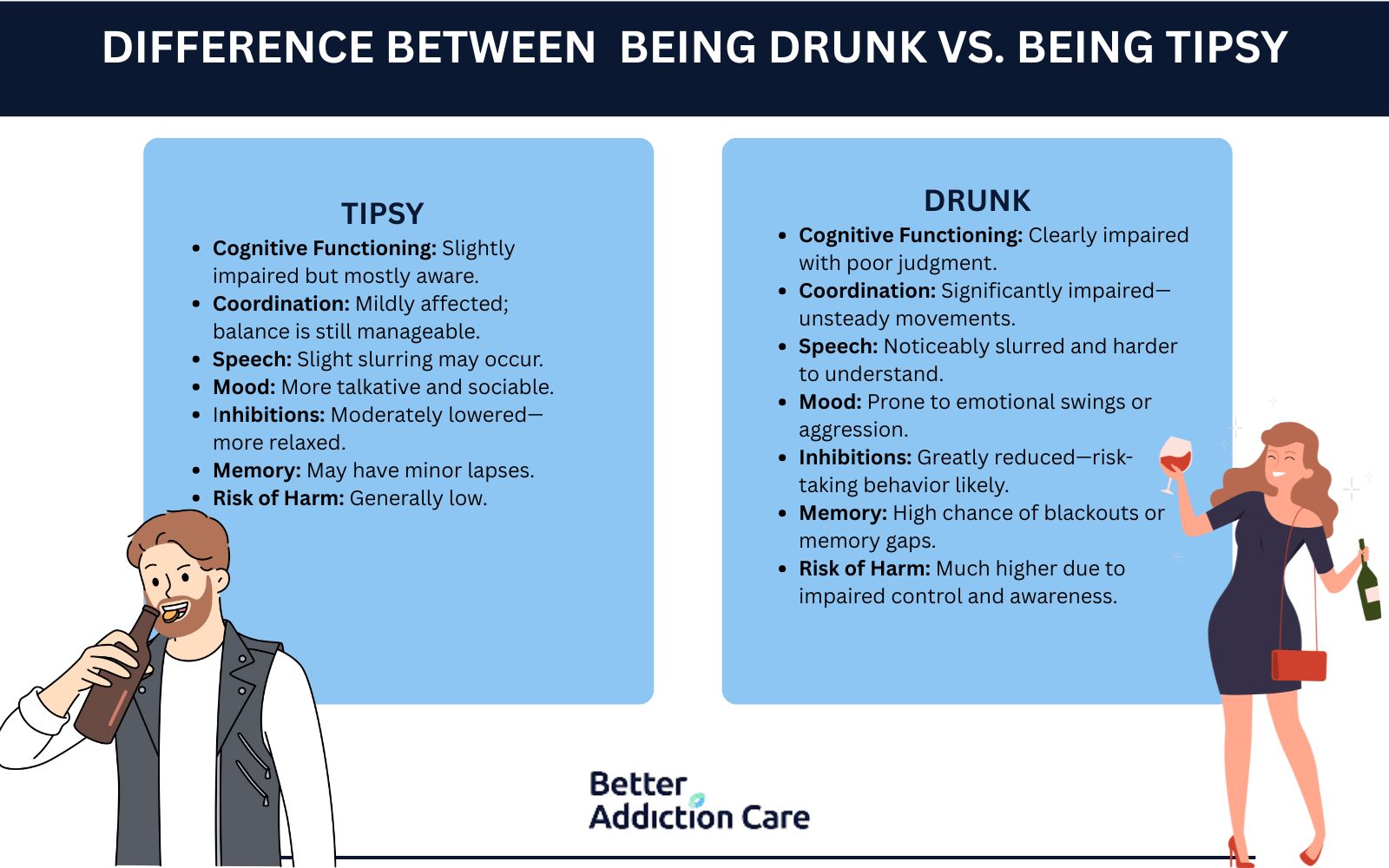
The difference between being tipsy and drunk lies in the severity of cognitive functioning, coordination, and speech impairments, as well as variations in mood, inhibitions, memory lapses, and risk of harm.
The difference between being tipsy and drunk lies in the severity of cognitive functioning, coordination, and speech impairments, as well as variations in mood, inhibitions, memory lapses, and risk of harm.
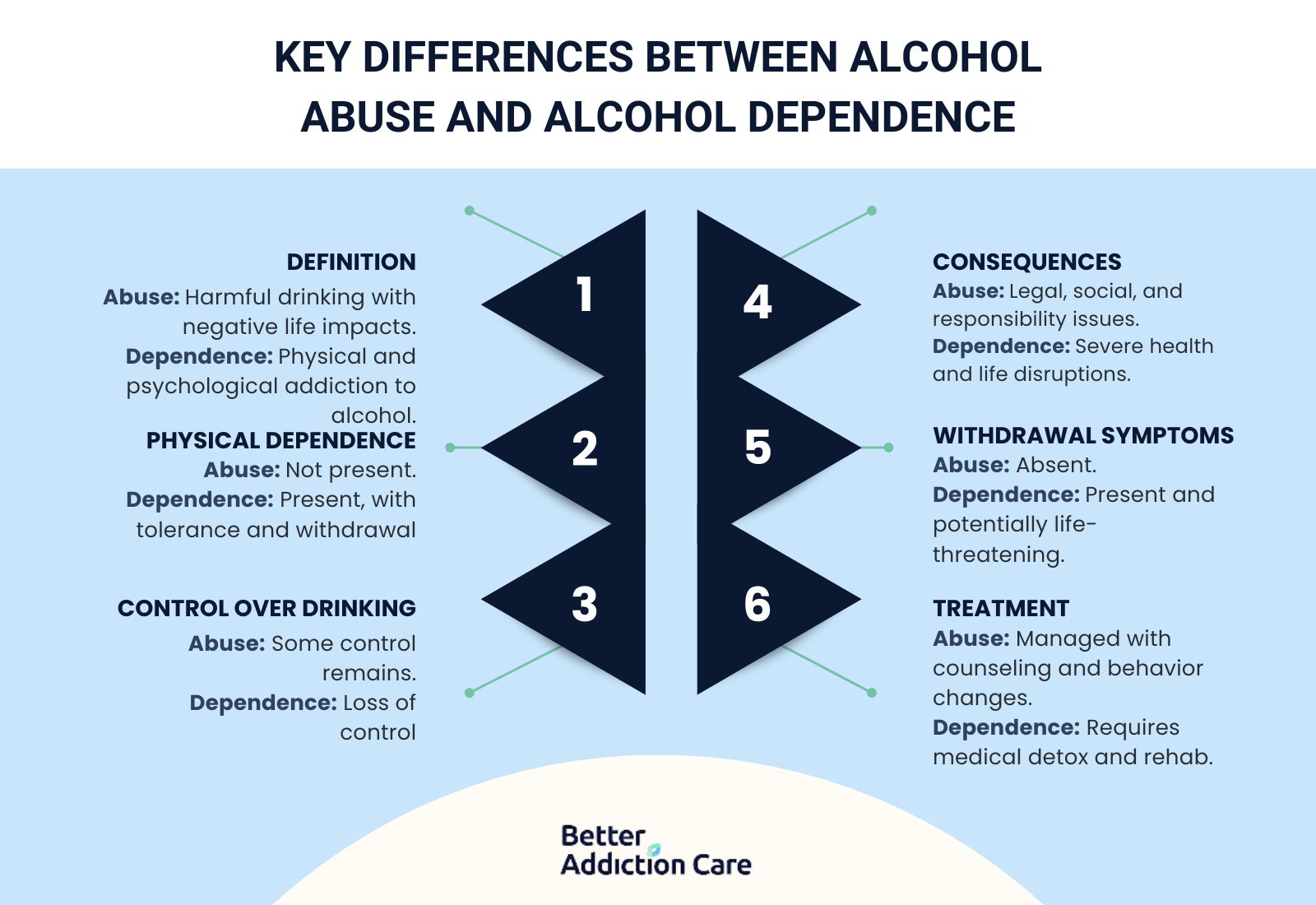
Differences between alcohol abuse and alcohol dependence are marked by distinct characteristics and consequences.Alcohol abuse involves harmful drinking patterns that negatively impact various life aspects, while alcohol dependence entails physical and psychological reliance on alcohol.
Differences between alcohol abuse and alcohol dependence are marked by distinct characteristics and consequences.Alcohol abuse involves harmful drinking patterns that negatively impact various life aspects, while alcohol dependence entails physical and psychological reliance on alcohol.
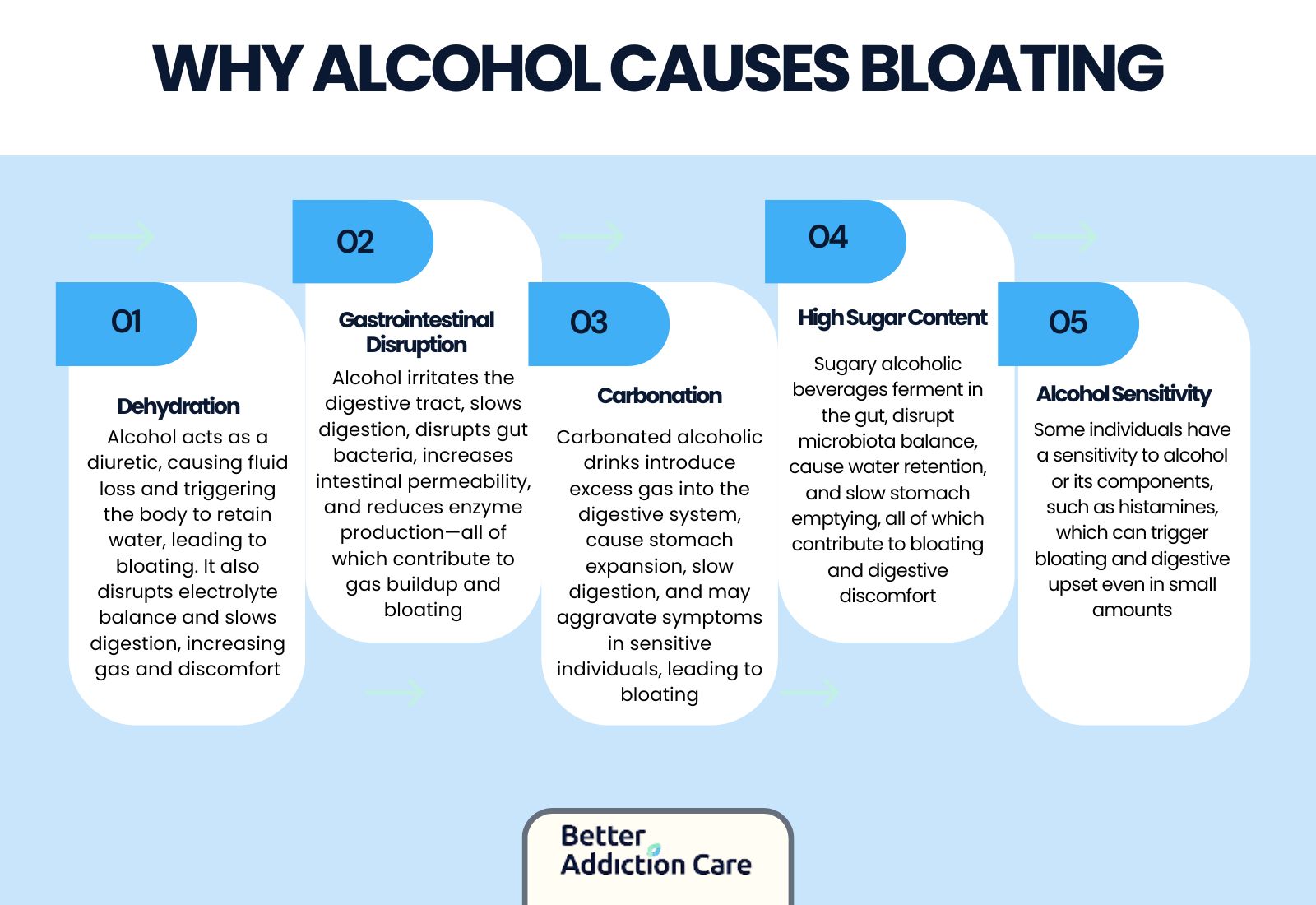
Alcohol bloating refers to the uncomfortable sensation of fullness and swelling in the abdomen caused by factors such as fluid retention, gastrointestinal disruption, gas accumulation, and fermentation of sugars from alcoholic beverages.
Alcohol bloating refers to the uncomfortable sensation of fullness and swelling in the abdomen caused by factors such as fluid retention, gastrointestinal disruption, gas accumulation, and fermentation of sugars from alcoholic beverages.
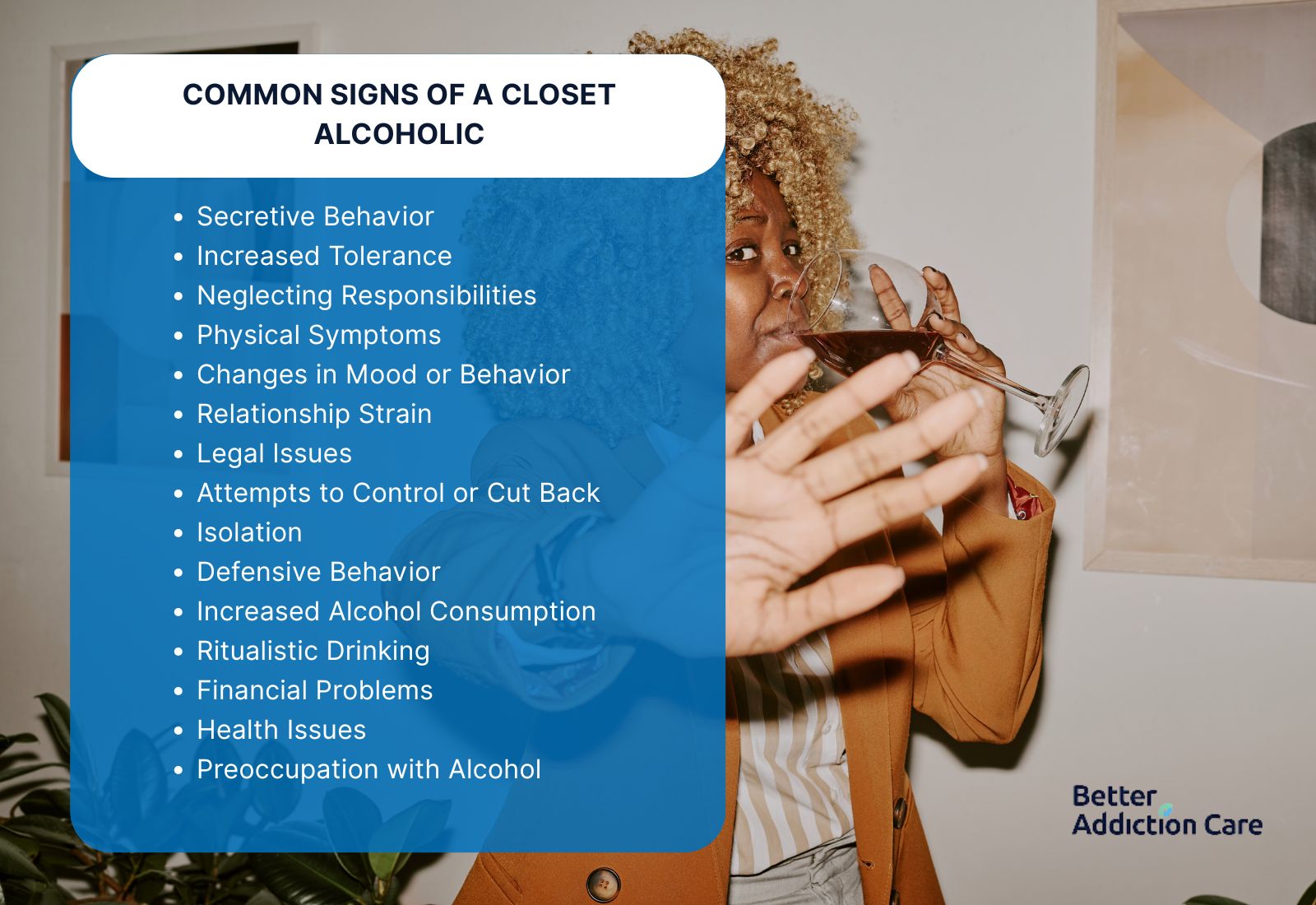
You are a closet alcoholic if you hide your alcohol addiction from others, consume alcohol in secrecy, and make efforts to conceal your habits from your partner, friends, family, and coworkers. This involves hiding alcohol bottles, drinking alone, or making excuses to leave events early to drink privately.
You are a closet alcoholic if you hide your alcohol addiction from others, consume alcohol in secrecy, and make efforts to conceal your habits from your partner, friends, family, and coworkers. This involves hiding alcohol bottles, drinking alone, or making excuses to leave events early to drink privately.
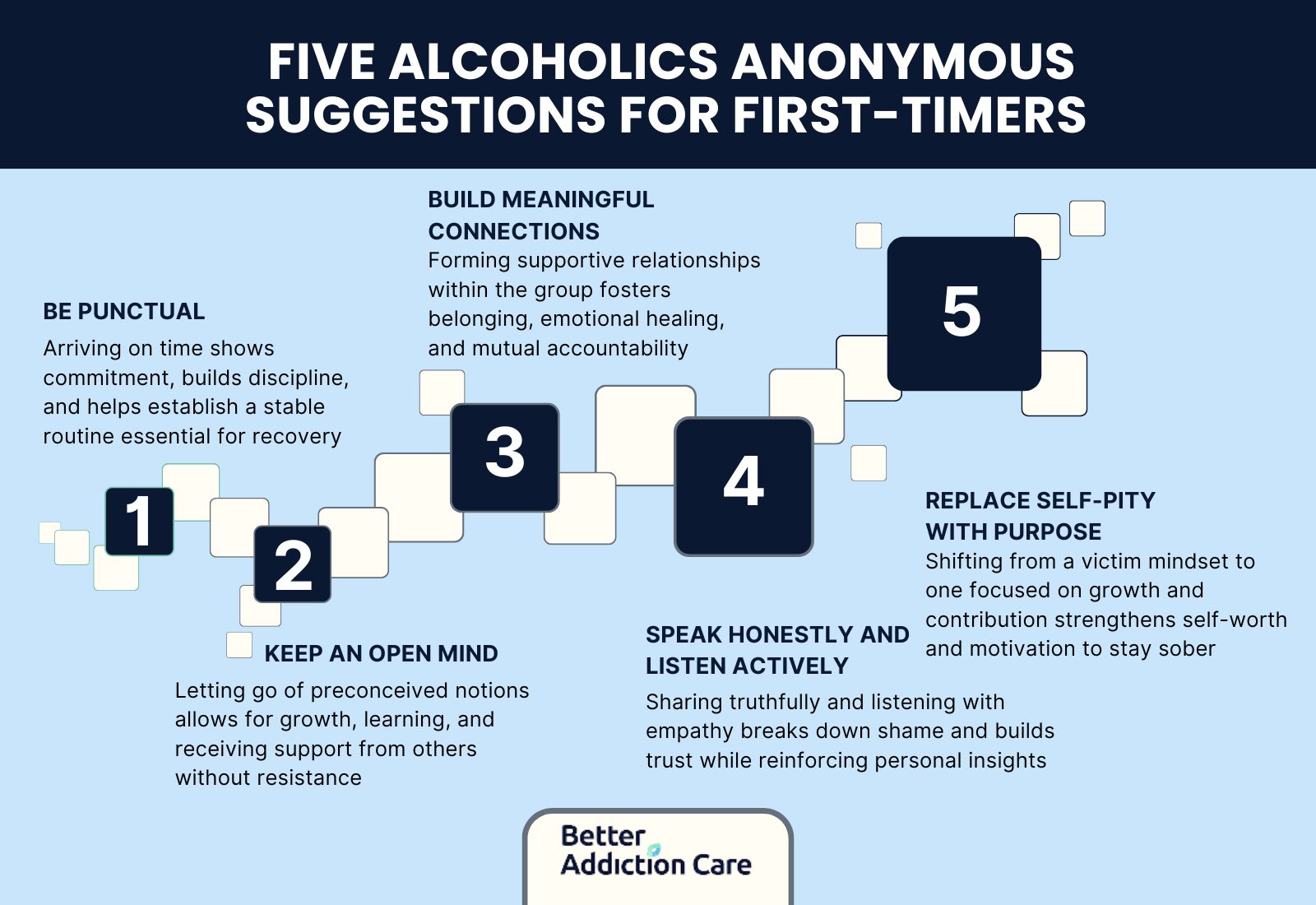
Five Alcoholics Anonymous tips are being punctual to meetings, maintaining an open mindset, forming supportive connections, sharing experiences openly, and avoiding self-pity throughout the recovery journey.
Five Alcoholics Anonymous tips are being punctual to meetings, maintaining an open mindset, forming supportive connections, sharing experiences openly, and avoiding self-pity throughout the recovery journey.
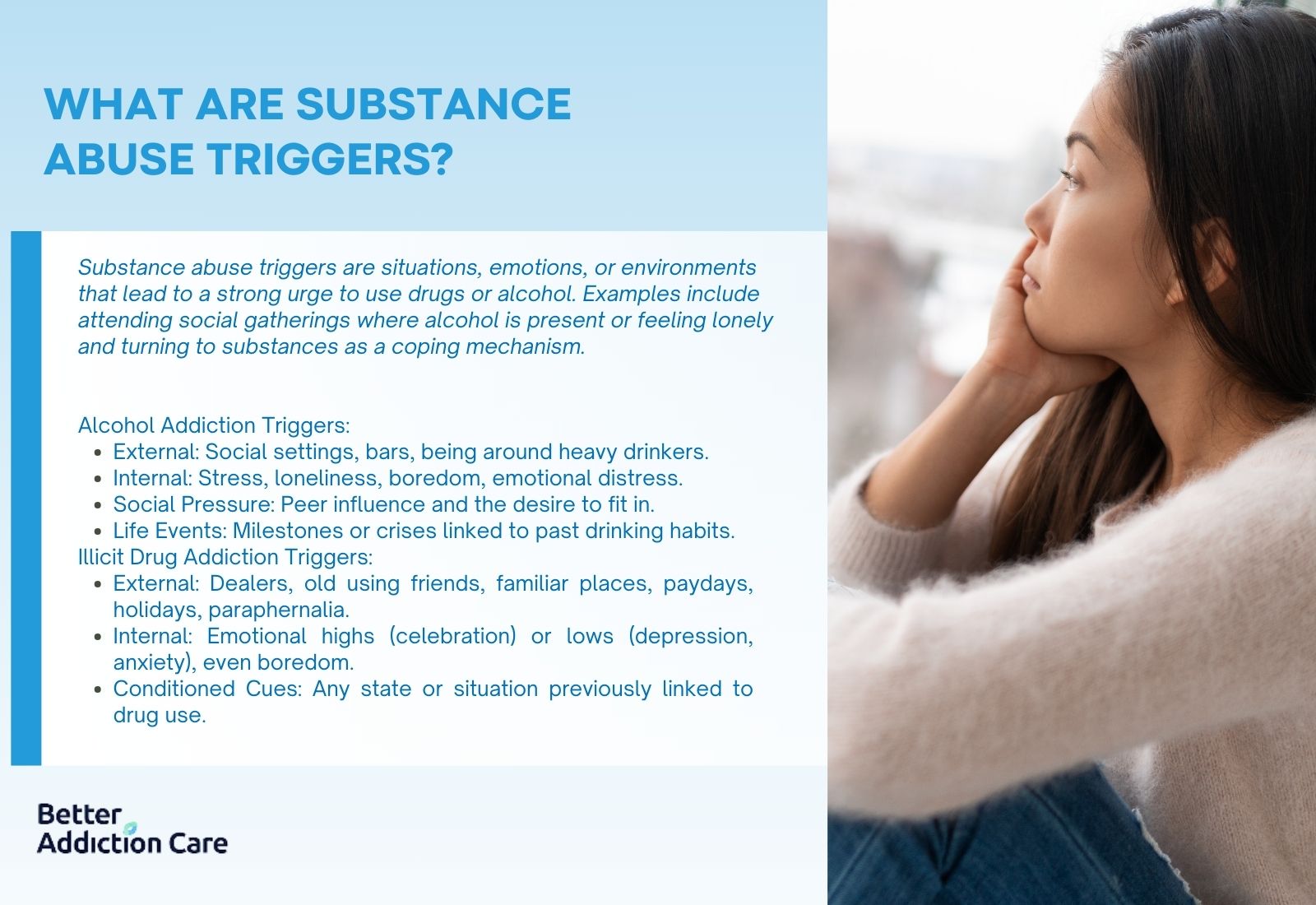
Substance abuse triggers are situations, emotions, or environments that provoke a strong urge to use drugs or alcohol. They fall into two categories: external triggers and internal triggers.External triggers for substance use include people, places, situations, and things.
Substance abuse triggers are situations, emotions, or environments that provoke a strong urge to use drugs or alcohol. They fall into two categories: external triggers and internal triggers.External triggers for substance use include people, places, situations, and things.

Sobriety presents a challenging journey filled with obstacles from everyday triggers such as places, people, memories, and media.Words of encouragement provide support and remind individuals that they are not alone in their struggles.
Sobriety presents a challenging journey filled with obstacles from everyday triggers such as places, people, memories, and media.Words of encouragement provide support and remind individuals that they are not alone in their struggles.
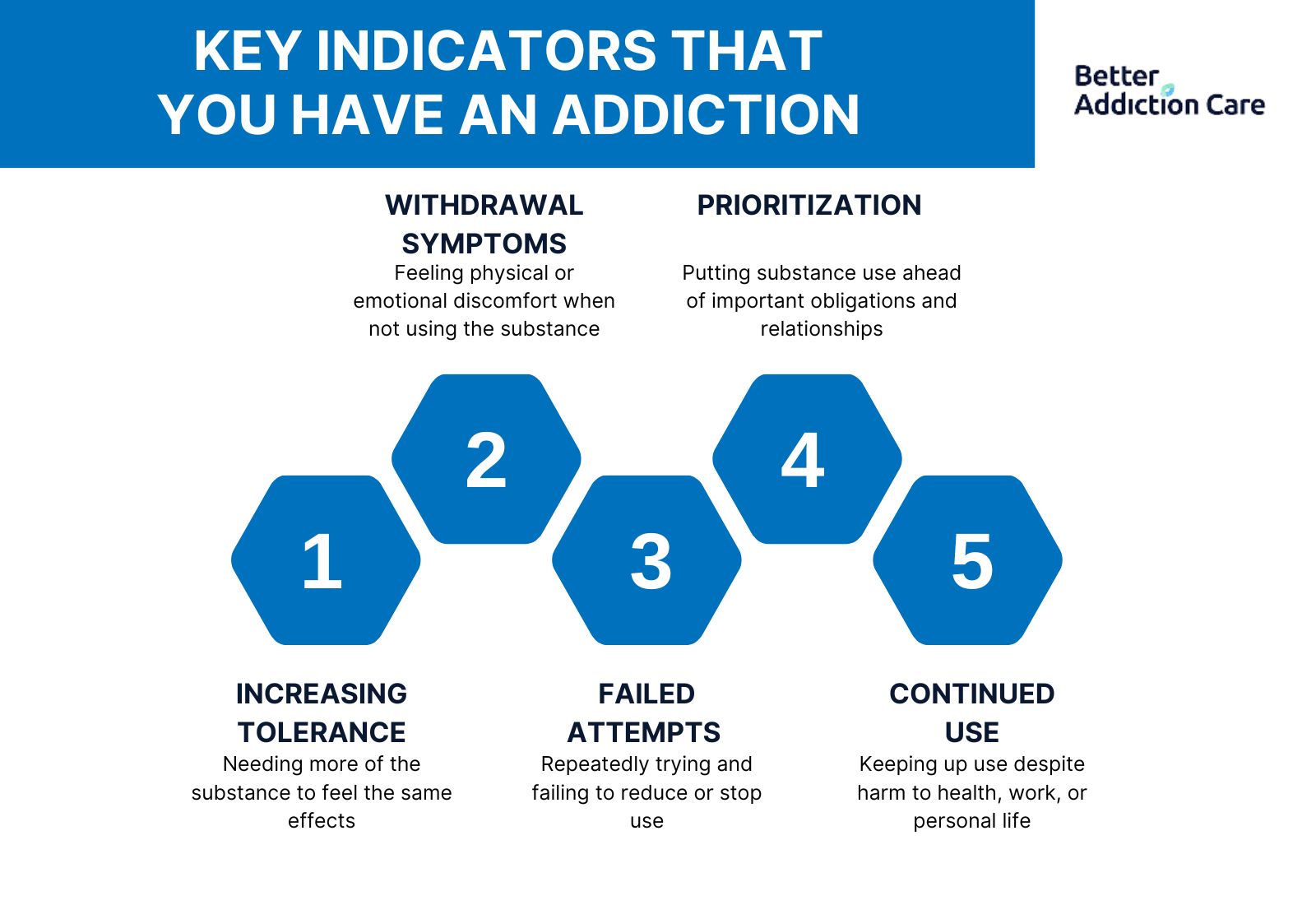
Addiction recovery is a personal journey with challenges and growth. Common questions regarding addiction recovery focus on recognizing addiction, the recovery stages, and how long recovery takes. It involves acknowledging the problem, detoxifying, rehabilitation, and maintaining sobriety.
Addiction recovery is a personal journey with challenges and growth. Common questions regarding addiction recovery focus on recognizing addiction, the recovery stages, and how long recovery takes. It involves acknowledging the problem, detoxifying, rehabilitation, and maintaining sobriety.
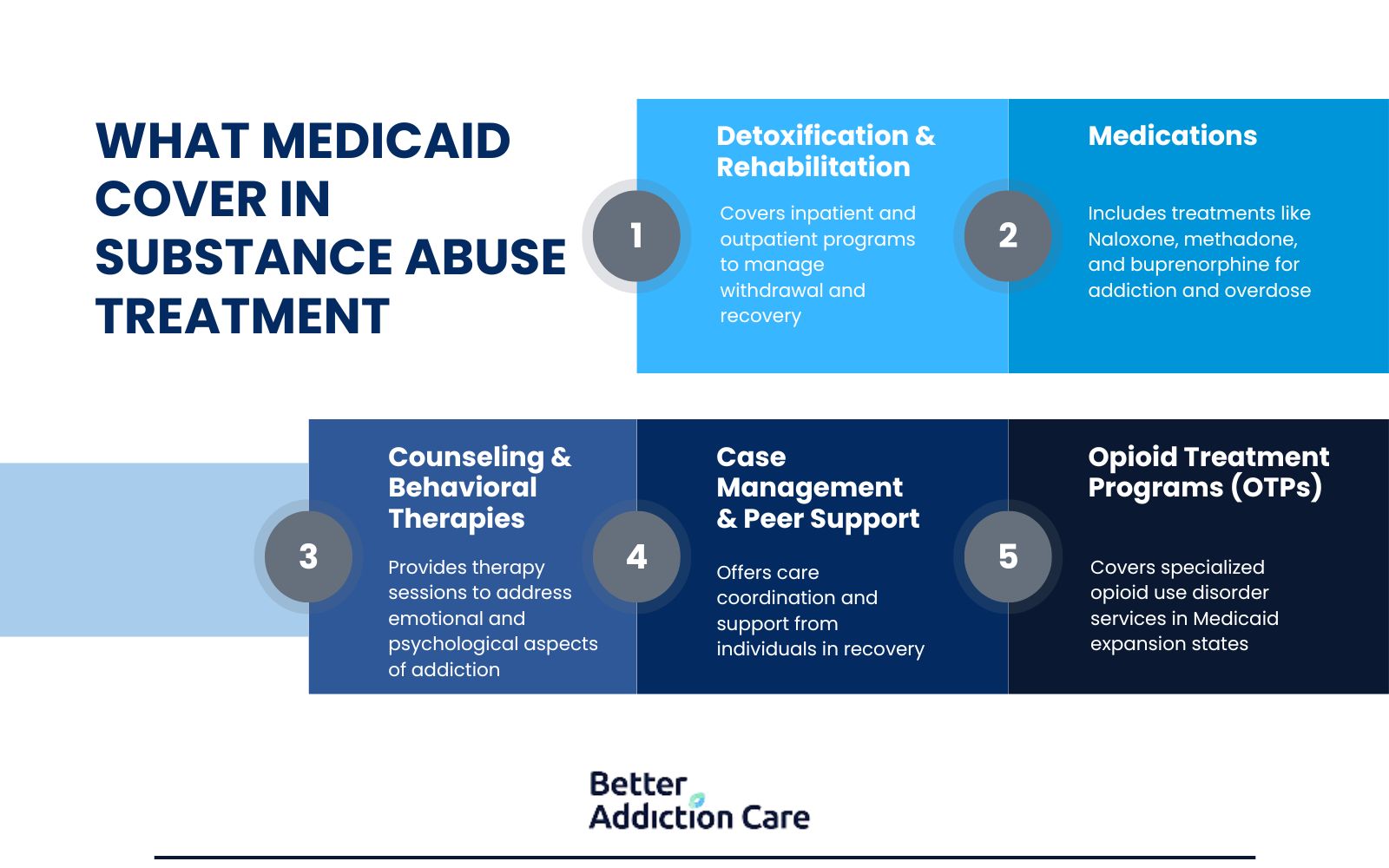
Medicaid is a government-funded health insurance program that provides access to essential healthcare services, including addiction treatment, to low-income individuals and families, with coverage varying by state.
Medicaid is a government-funded health insurance program that provides access to essential healthcare services, including addiction treatment, to low-income individuals and families, with coverage varying by state.
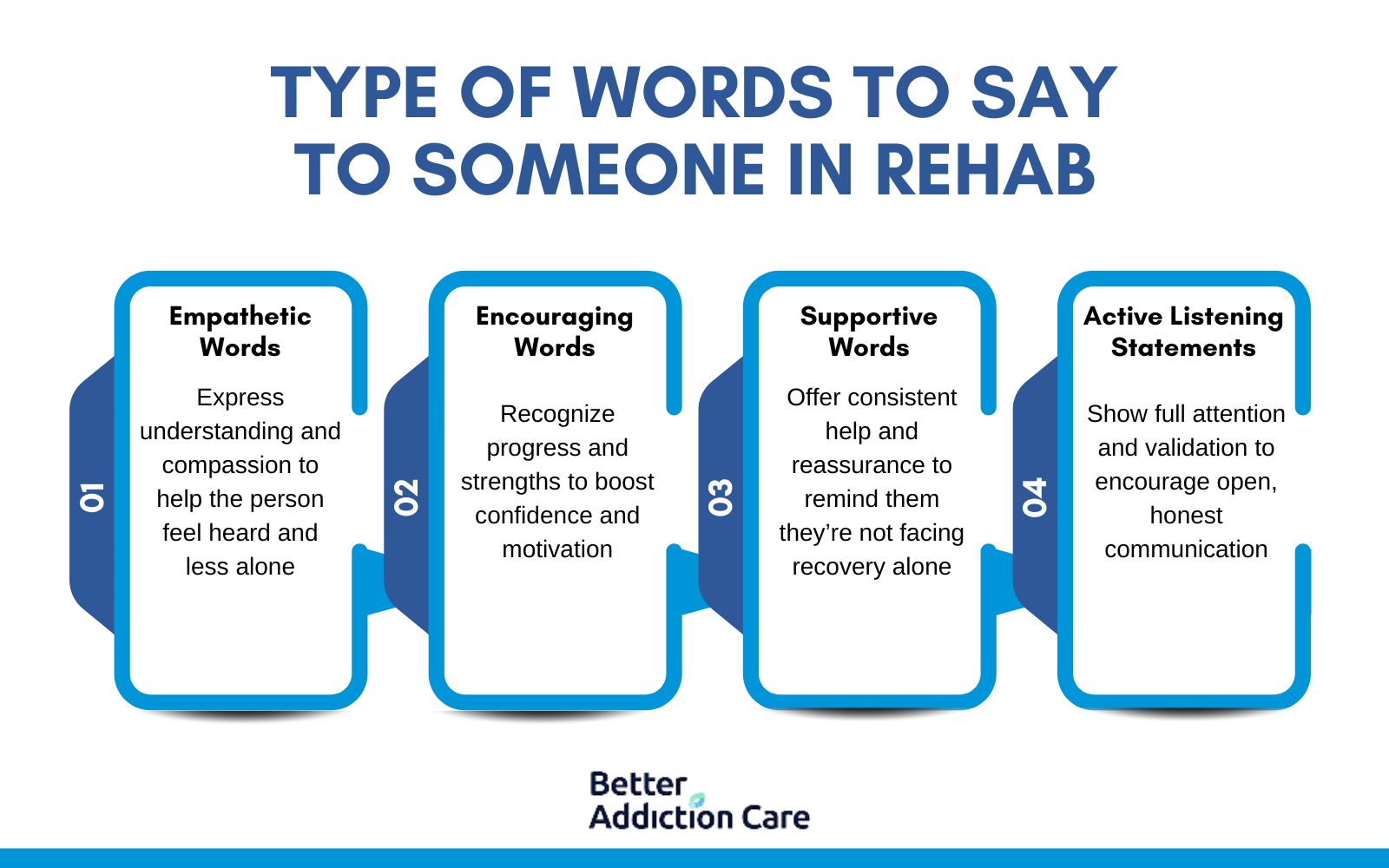
When speaking to someone in rehab, focus on expressing empathy, offering encouragement, providing support, and practicing active listening.Effective communication with individuals in rehabilitation requires compassionate, nonjudgmental language that validates their feelings and experiences.
When speaking to someone in rehab, focus on expressing empathy, offering encouragement, providing support, and practicing active listening.Effective communication with individuals in rehabilitation requires compassionate, nonjudgmental language that validates their feelings and experiences.
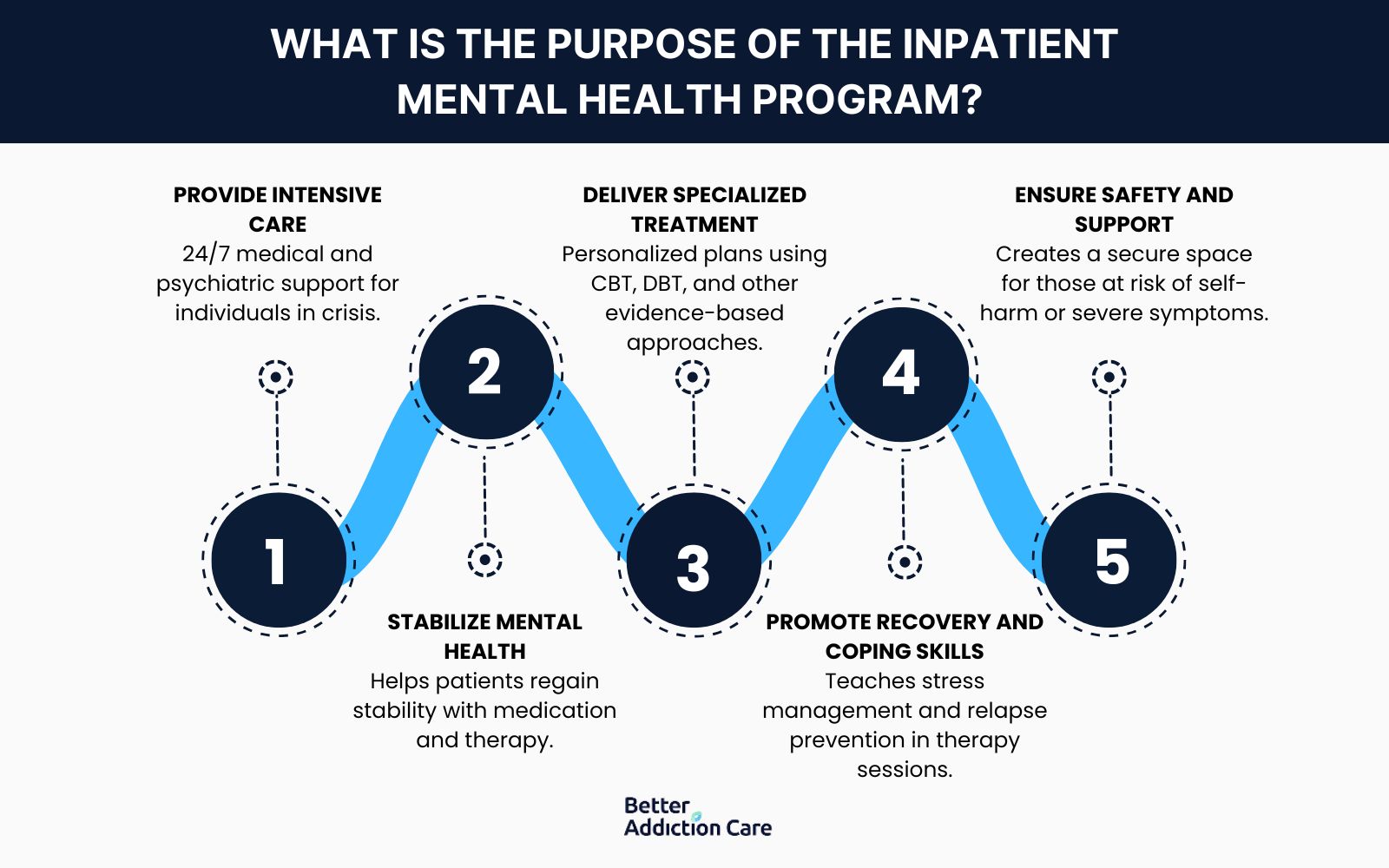
Inpatient mental health programs provide a structured and supportive environment for individuals struggling with severe mental health conditions. These programs offer round-the-clock medical and therapeutic care, ensuring that patients receive intensive support tailored to their needs.
Inpatient mental health programs provide a structured and supportive environment for individuals struggling with severe mental health conditions. These programs offer round-the-clock medical and therapeutic care, ensuring that patients receive intensive support tailored to their needs.
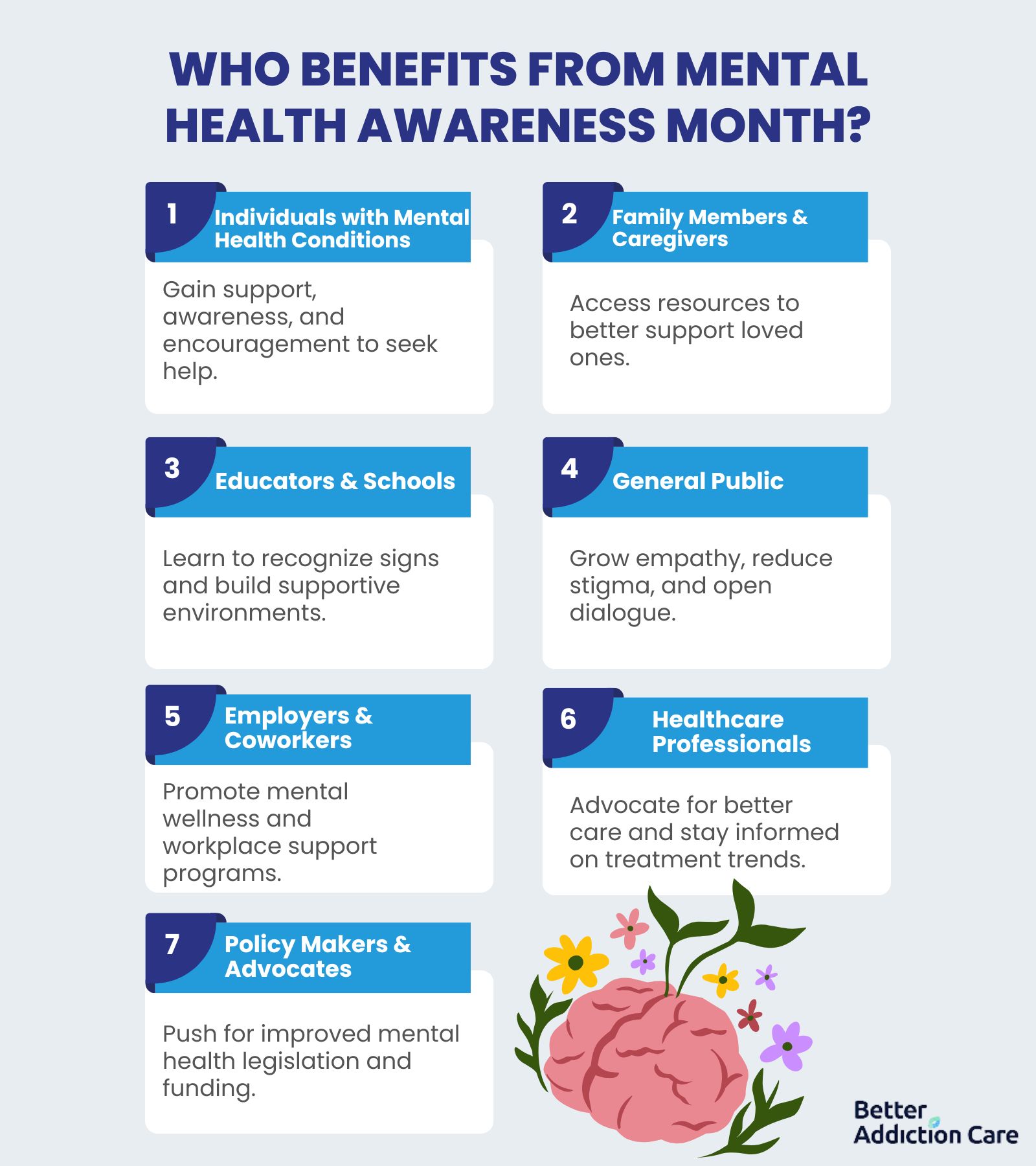
Mental Health Awareness Month is a nationwide observance dedicated to raising awareness surrounding mental health. From anxiety and depression to trauma and co-occurring disorders, Mental Health Awareness Month highlights the broad range of challenges people face and emphasizes that mental health is just as important as physical health.
Mental Health Awareness Month is a nationwide observance dedicated to raising awareness surrounding mental health. From anxiety and depression to trauma and co-occurring disorders, Mental Health Awareness Month highlights the broad range of challenges people face and emphasizes that mental health is just as important as physical health.
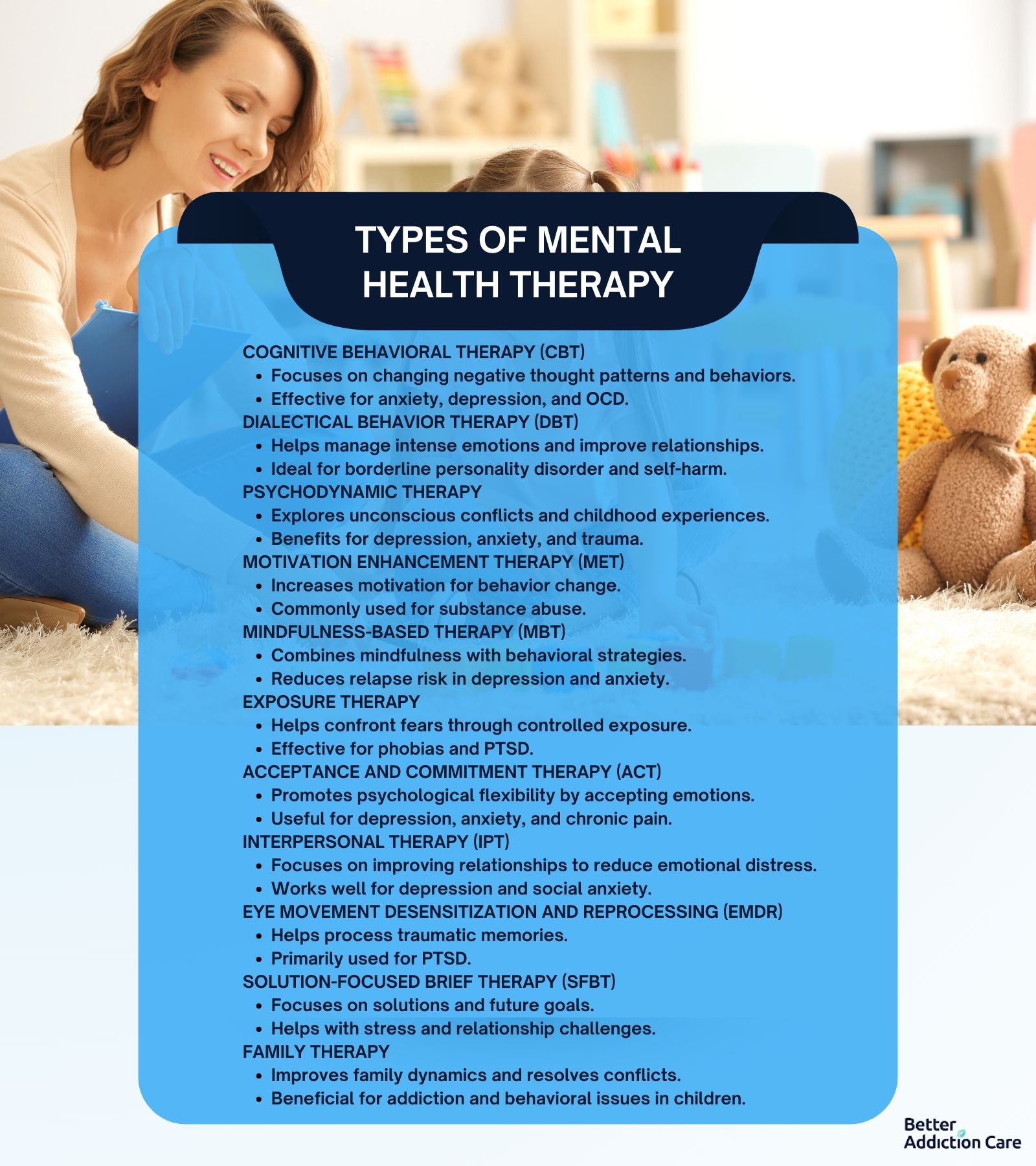
Mental health therapy is a structured treatment approach designed to help individuals manage and overcome psychological and emotional challenges. Therapy is important for addressing mental health disorders such as depression, anxiety, PTSD, and substance use disorders, providing individuals with the tools they need to lead healthier and more fulfilling lives.
Mental health therapy is a structured treatment approach designed to help individuals manage and overcome psychological and emotional challenges. Therapy is important for addressing mental health disorders such as depression, anxiety, PTSD, and substance use disorders, providing individuals with the tools they need to lead healthier and more fulfilling lives.
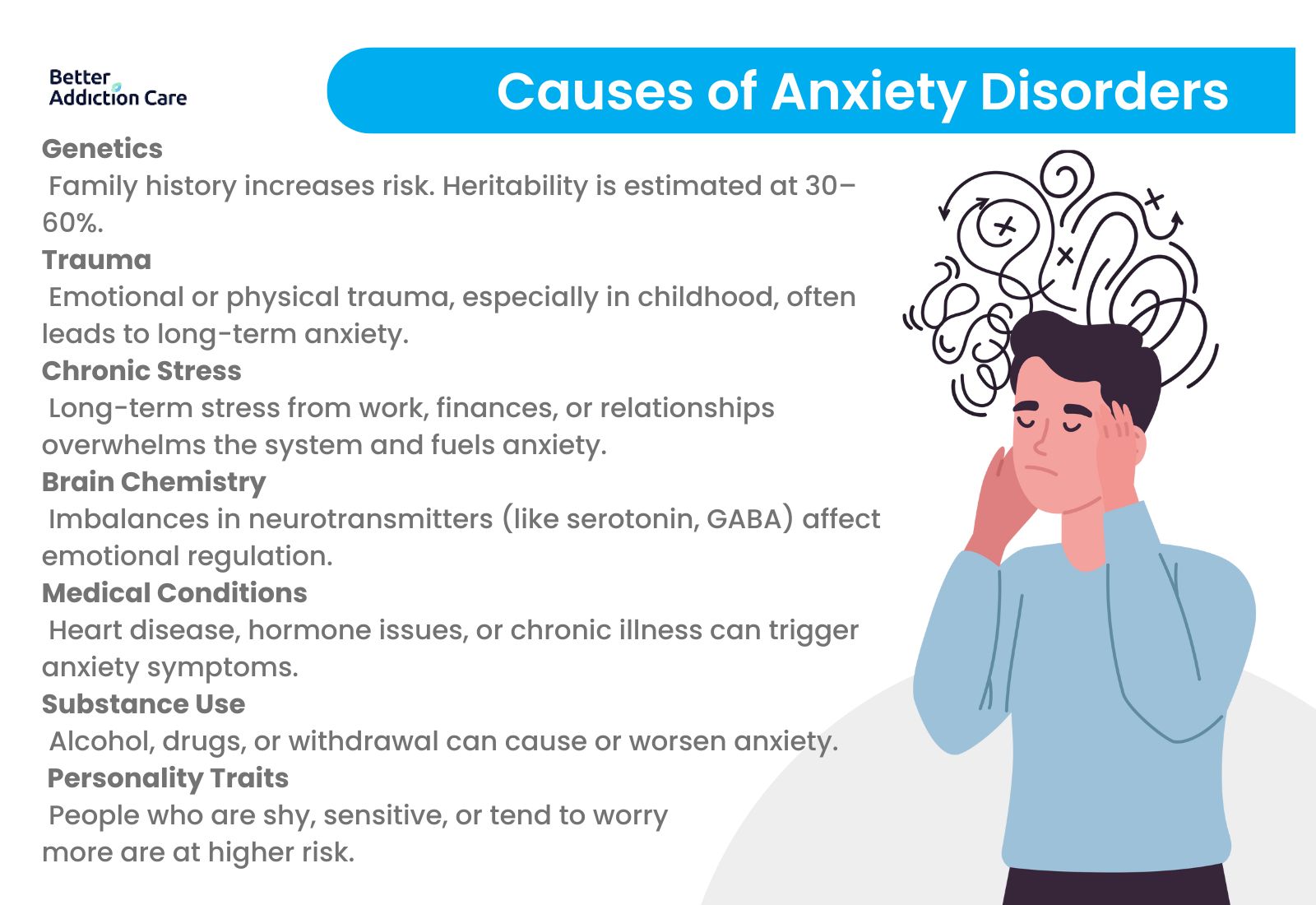
Anxiety disorders are mental health conditions marked by persistent fear, worry, or nervousness that interferes with daily life. Unlike occasional anxiety, these disorders involve intense symptoms that disrupt thinking, emotions, and behavior, making it difficult to function socially and professionally.
Anxiety disorders are mental health conditions marked by persistent fear, worry, or nervousness that interferes with daily life. Unlike occasional anxiety, these disorders involve intense symptoms that disrupt thinking, emotions, and behavior, making it difficult to function socially and professionally.
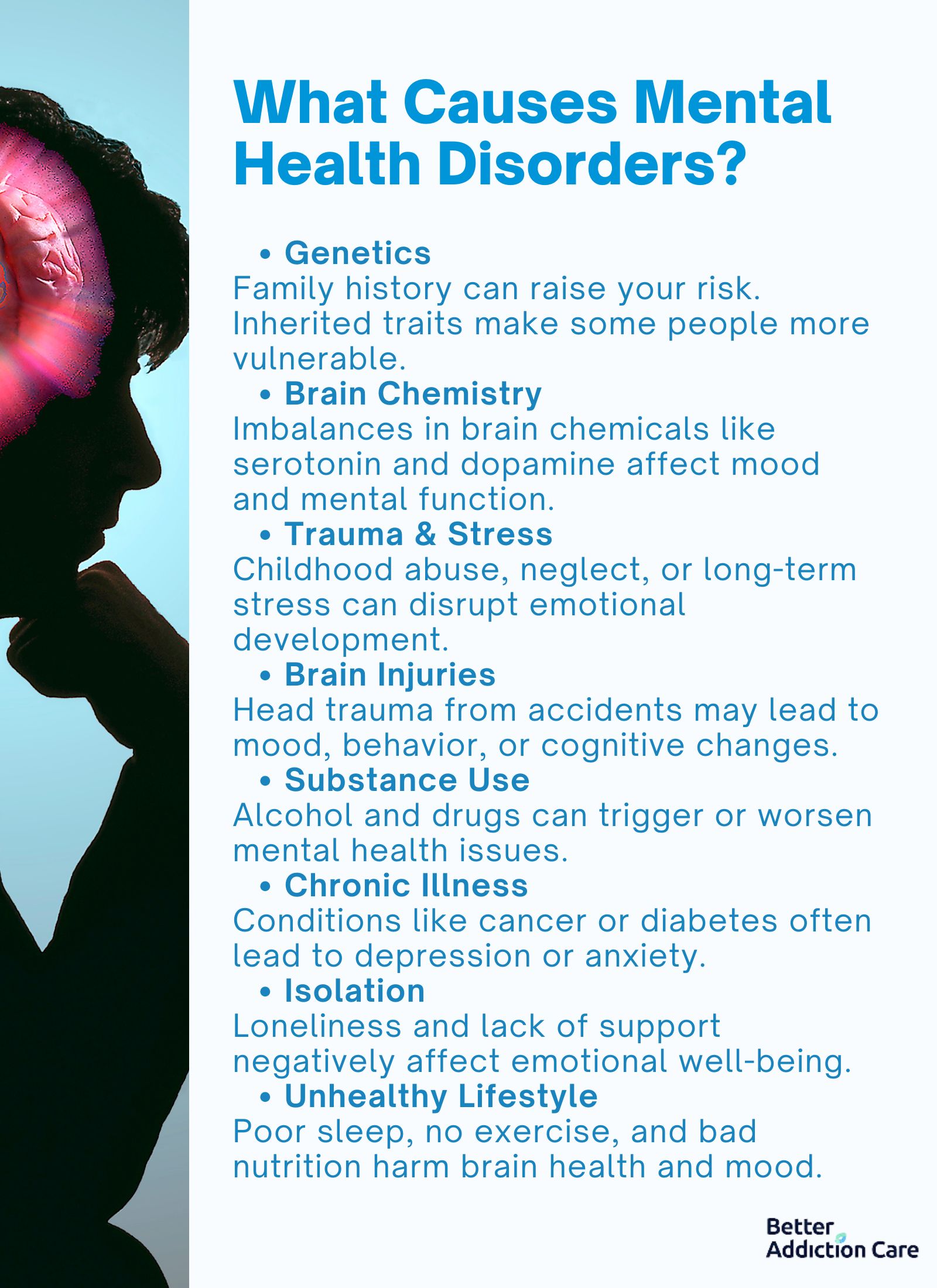
Mental health disorders are medical conditions that interfere with an individual’s emotional, psychological, and social well-being. These disorders impact how people think, feel, and behave, and they limit one’s ability to function effectively in daily life.
Mental health disorders are medical conditions that interfere with an individual’s emotional, psychological, and social well-being. These disorders impact how people think, feel, and behave, and they limit one’s ability to function effectively in daily life.

Alcohol intervention is a structured approach designed to confront and assist individuals exhibiting harmful drinking behaviors, with the goal of guiding them toward professional treatment. According to the National Institute on Alcohol Abuse and Alcoholism (NIAAA), nearly 29.
Alcohol intervention is a structured approach designed to confront and assist individuals exhibiting harmful drinking behaviors, with the goal of guiding them toward professional treatment. According to the National Institute on Alcohol Abuse and Alcoholism (NIAAA), nearly 29.
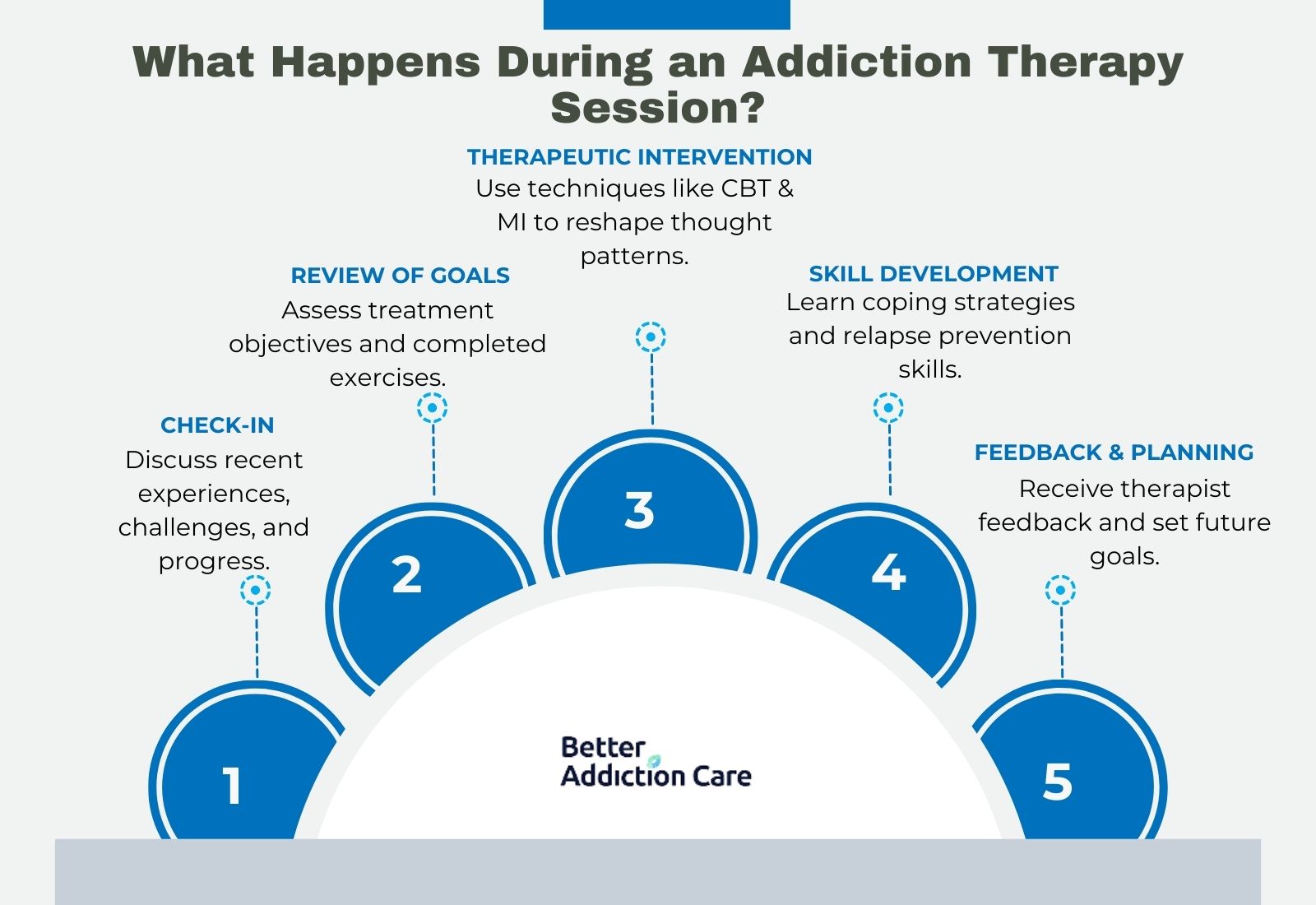
Addiction therapy is a structured form of treatment designed to help individuals overcome substance use disorders by addressing the psychological, emotional, and behavioral aspects of addiction. It involves evidence-based interventions that guide individuals through recovery, improve mental health, and reduce the risk of relapse.
Addiction therapy is a structured form of treatment designed to help individuals overcome substance use disorders by addressing the psychological, emotional, and behavioral aspects of addiction. It involves evidence-based interventions that guide individuals through recovery, improve mental health, and reduce the risk of relapse.
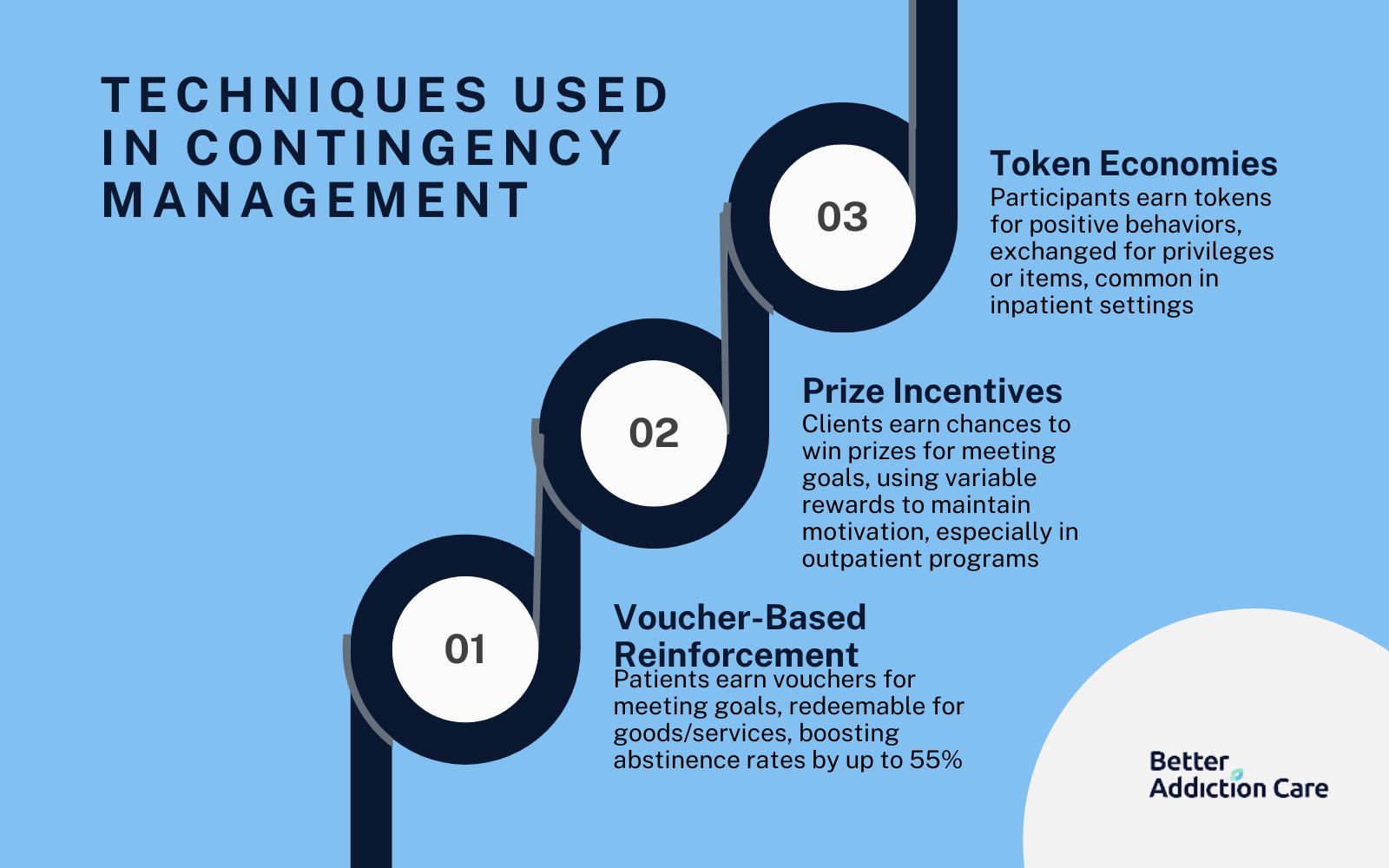
Contingency management (CM) uses operant conditioning and reinforcement techniques to encourage positive behavioral changes, such as abstinence or treatment adherence. According to a study by Higgins et al.
Contingency management (CM) uses operant conditioning and reinforcement techniques to encourage positive behavioral changes, such as abstinence or treatment adherence. According to a study by Higgins et al.
